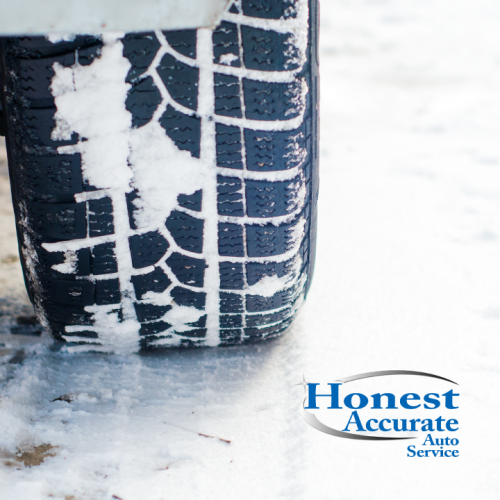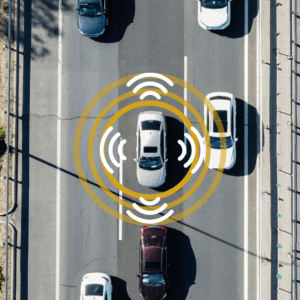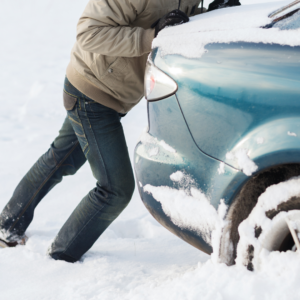When it comes to driving safely during a Colorado winter, brakes are your biggest allies in the battle against snow, ice and serious accidents. Your brakes are crucial for stopping effectively any time of the year, especially in the winter. You can have brand-new snow tires with the highest safety rating possible, and they will do you zero good if your brakes cannot engage the tires to stop.
At Honest Accurate Auto Service, we inspect your brakes and keep you apprised of any potential issues during your routine maintenance and inspection appointments. Reliable brakes are essential to ensure your safety! Read on to learn the basics of preparing your vehicle’s brakes for winter weather.
Common Winter Brake Problems to Watch For
Colorado winters can cause unique problems for your vehicle’s braking performance that you won’t experience in warmer months. That means that your brakes need special attention, particularly in snowy or icy conditions.
Salt Build-up on Brakes
The Colorado Department of Transportation uses a special “brine” for melting ice on the roads during a snowstorm. Components of this de-icer include salt, which can cause corrosion in the metal components of your brakes. Colorado drivers are more fortunate than most drivers in other states. CDOT adds an anti-corrosion additive to their deicing agents to help reduce wear and tear on vehicles.
However, that does not mean your vehicle is immune! The anti-corrosion additive doesn’t mean there is zero chance of corrosion. The solution is specific to roads managed by CDOT. It is not necessarily used in private parking lots, driveways and sidewalks (or the run-off from those paved areas). Plus, if you’re driving in a state that uses regular road salt, you’ll want to be wary of potential damage. Yes, even if you’re only visiting.
Corrosion can cause advanced wear and tear on your brakes. It impacts their ability to help you stop in everyday driving and during an emergency. No one wants their brake pedal to freeze up when they need it most. And repairs can be costly when this corrosion advances from easily replaced parts to more intricate components within the braking system!
Solution: Inspect your vehicle’s brakes regularly, examining them for indications of rust and damage. Visit a car wash after the roads have dried and ensure the selected wash includes the car’s undercarriage. We know a car wash can feel like a waste of money in the winter (because it will just get dirty again in days). However, that $5-$7 can save you hundreds of dollars on brake repairs or accidents.
Cracks and Leaks in Brake Lines
No matter how carefully you drive in the winter, there are many hazards that can damage your brake system. For example, salt solutions do not just corrode brakes and metal components. Salt can also cause damage to brake lines and fuel lines by degrading the rubber. Brake lines channel brake fluid to your vehicle’s braking system. If that fluid is not delivered properly, the brake calipers cannot engage and slow your vehicle to a stop.
Winter increases the number of hazards in the road that can damage these components, as well. Snow can hide stray lumber, broken concrete or stray pieces of tire, inhibiting your ability to avoid them. Snow can also hide curbs, speed bumps and potholes.
One last hazard that winter poses for Colorado drivers is ice chunks. Whether created by build-up during plowing, or dropped from the packed wheel wells of other cars, these chunks can be brutal on your car’s brake system. They are also often impossible to avoid.
Solution: Maintain your brakes so they can help you avoid winter road hazards by slowing or coming to a complete stop. Inspect your brakes for damage and check underneath your vehicle for stray fluids. Brake fluid is typically light yellow (which certainly complicates inspection if you have pets nearby). You can also do your part in minimizing hazards by removing snow build-up in the wheel wells so you aren’t contributing to giant ice blocks in the road.
Overheating Brakes
While many people think that overheated brakes are a danger restricted to truckers and runaway truck ramps in the mountains, any vehicle is vulnerable. If you’ve ever driven up and down the highway of our local fourteener, Pikes Peak, you’ve likely had to stop and have your brake temps checked at the gate. This is because the repeated use of your brakes (which happens when you’re driving down 20 miles of steep hills and switchbacks) can cause them to overheat and fail.
If there’s ever a time that your brakes are used more often than usual, it’s the winter! After all, isn’t the number one tip for winter driving to go slow? A slow pace requires you to engage your brakes quite frequently and proactively. Add in the complication of navigating hazards and avoiding other drivers, and you have yourself a potential problem.
The hotter your brakes become, the more prone they are to brake fade (reduced braking power). Even a slight slowing of response time can be the difference between an accident and a safe arrival home. Brake fade is one of the signs of brake failure, which can be incredibly dangerous.
Solution: One of the easiest ways to avoid overheated brakes is to take your time while driving so you do not have to engage them so often. If possible, drive in a lower gear to help your car slow more easily. Downshifting is particularly important when navigating hills. If your response time slows because of brake fade, pull over as soon as it is safe to do so. Allow your brakes to cool. Last, get a brake inspection after winter to check if overheating has caused damage.
Frozen Brakes
In addition to overheating, your brakes can also experience challenges on the opposite end of the spectrum: freezing. Frozen brakes typically occur after snowy, slushy or icy driving conditions.
Moisture from snow and slush while driving can quickly become ice in the brakes or the emergency brake later on. While in motion, moisture in your brakes is not necessarily a problem. The heat from the action of the brakes keeps the liquid from becoming frozen. The heat helps even if cold temperatures are below the freezing point.
Once the vehicle is stopped, sub-zero temperatures can cause significant issues with semi-metallic and ceramic brake pads in cold weather. Rotors and calipers can also become frozen. Frozen brakes will be quite obvious once the car is in motion with grinding noises and high-pitched sounds. Repeated freezes can cause your brakes to wear faster than normal, making brakes weak when cold weather passes.
Solution: Fortunately, a vehicle that gets frozen brakes in cold weather is usually easy to fix. You can start easily by waiting for temps to warm up. If that is not possible, you can also try turning on the car and allowing the heat from the engine to loosen the ice.
Another option is to press and depress the brake gently. This action will help break up the frozen water or even rock the car back and forth. If your brakes are still making noise, it’s best to wait it out rather than cause damage. If you find your brakes having this problem frequently, take them in for an inspection. Frozen brake calipers and pads are not great for the longevity of your car.
Do Your Brakes Need Maintenance or Replacement Before the Next Winter Storm?
The components of your brake system require periodic maintenance or replacement to be effective. Even if they are not causing the common winter car problems above, this is true. Brake pads wear down, calipers wear out, brake rotors (or drums) can warp or become thin, the brake fluid needs replacement and leaks can develop that keep the system from working effectively.
Thankfully, your brake system gives you warnings if it needs help! If you are experiencing any of the following issues, it’s time to get a Tire Alignment Inspection!
Key indicators that your brakes need to be inspected before the next winter storm:
- Squealing and/or grinding when you depress the brake pedal
- Having to depress your brake pedal further than you used to (“squishy” feel)
- Feeling a “shudder” in the steering wheel upon braking
- Vibration or clunking sound when braking
The parking brake no longer works effectively
If your brakes are making any of these “cries for help,” they will absolutely need some attention. Any of these indicators can signal impending brake failure. That is not what you need to worry about while driving in a Colorado winter. No ifs, ands or buts, your brakes have to work. Always. Even if circumstances are not dire, these issues indicate a need for routine brake maintenance. Having them looked at sooner rather than later can save you money in addition to increasing your overall safety.
Timely winter brake maintenance and service keeps you safe. It will also decrease repair costs and save you money by warding off those very expensive accident costs associated with poorly functioning brakes and winter weather. Set up a time to have your brakes inspected by your favorite Honest Accurate Auto technician. Stay safe out there!




